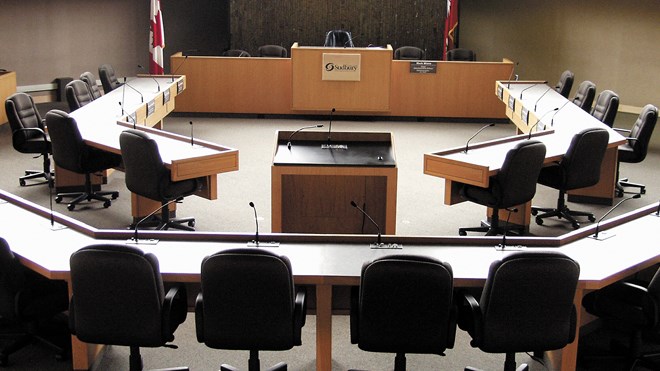Editor’s note: The following is an open letter to Greater Sudbury Mayor Brian Bigger and members of council.
I am deeply disturbed by the conduct and practices of the City of Greater Sudbury Council, as well as the city’s management staff.
We observed reports of the thousands of tax dollars being used on legal fees regarding the city’s responses to citizen objections to the Kingsway Entertainment District (KED).
I question both the ethics and moral responsibility of the city to devote outrageous sums of taxpayers money on lawyers to oppose the appropriate and legitimate objections of some highly concerned taxpayers.
This prevents and inhibits the ability of any taxpayer or even a legitimate group of taxpayers ever having the means at their disposal to compete with the almost limitless resources of the city on any legal matter.
In a word, taxpayers are actually financing the city’s ability to neutralize any and all legitimate objections to any planning, construction and development projects. Citizens are at a further disadvantage as developers and corporations also have considerable resources.
Case in point: Recently, a citizen group (with limited means) was denied the opportunity to be able to present new evidence to the LPAT (Local Planning Appeal Tribunal) regarding the KED on the grounds of a “technicality.” It was as a result of the long awaited report of the City of Greater Sudbury’s Watershed Study, an important and vital study that is intended to preserve the integrity and safety of water in our lakes, with some importance attached to Ramsey Lake, which is a major source of the community’s potable drinking water.
It transpires that the KED is planned to be constructed over a vital fresh water recharge area for Ramsey Lake.
Lawyers (representing proponents of the KED) managed to have the City of Greater Sudbury’s Watershed Study disallowed as evidence for the LPAT hearings.
This contains vital technical data and information very relevant to the case. The citizen group no longer has the means to fund legal means to challenge such a decision. So much for justice and equality before the law.
The process also ignores the fact that the City of Greater Sudbury’s Watershed Study was created by the city (albeit funded by the province) and intended to be part of a greater plan of sorts to preserve our resources of potable water supply in Sudbury.
I view the current process as an abuse of process by the Corporation of the City of Greater Sudbury aided and abetted by city council who are supposed to act on taxpayers behalf rather than those of corporate or special interests.
Regardless of the moral or ethical issues surrounding the KED. surely the contamination of the feeder system of a lake that is a primary drinking water source should be of paramount consideration.
In more recent times, it is common practice when planning just about anything, environmental concerns must be of major consideration.
Are we a community where those with the greatest means can run roughshod over the rights of objections by ordinary citizens? Maybe the City of Greater Sudbury can provide all the same means for the taxpayers as is used against them — return some equality to the legal process.
Further, I do not recollect at any time the Ward 9 councillor (where I reside) or anyone else convening any public meetings to inform and outline the details and implications of not only the KED, but other projects like the Junction, new library or convention centre. I would like to hear the details and explanations directly from any councillor, especially Ward 9.
It is apparent that those deciding matters about the projects have little or no experience or expertise of operating and sustaining such entities as a convention centre etc. And again, no input or information provided at community meetings. Maybe someone should ask those with extensive knowledge and practice from the community in such matters, rather than relying on consultants and city staff.
It is also deeply troubling that not only is the City of Greater Sudbury borrowing millions of dollars to fund projects that are centred almost solely in the city core, while largely ignoring peripheral communities, it is incurring immense debt at a time of potential reduced incomes of all taxpayers, private and business.
Thus there is the minimizing of individual ability to fund even the most basic needs by the municipal taxpayers. It also ignores potential future constraints regarding travel, business opportunities and amid future constraints regarding the wisdom of organizing gatherings of large numbers of people that might lead to gatherings of people in close proximity.
Now is the time to consider proper constraints on expenditures along with very serious planning of any and all projects, and that such ventures must have citywide constituency input.
City taxpayers will be confronted with additional taxes and limitations of services as both the federal government and the provincial government must regain the expenditures used to offset the Covid-19 crisis costs. There is only one taxpayer base – not three!
Lionel Rudd
Sudbury
